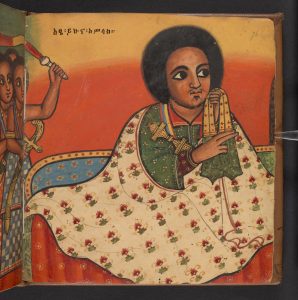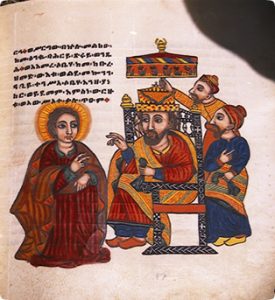In the rich tapestry of Ethiopian history, the Shewa region stands as a significant thread. Nestled in the heart of Ethiopia, Shewa once thrived as an autonomous kingdom within the greater Ethiopian Empire. Today, the bustling capital of Ethiopia, Addis Ababa, is emblematic of Shewa’s centrality, both geographically and historically.
Throughout its illustrious past, several towns have held the honor of being the capital of Shewa. From the ancient allure of Debre Berhan, Antsokia, and Ankober to the more recent prominence of Entoto and Addis Ababa, each has contributed to the narrative of the region.
Diverse in its ethnic tapestry, the northern swathes of Shewa, encompassing districts like Menz, Tegulet, Yifat, Menjar, and Bulga, are predominantly Christian Amharas. Conversely, the south is home to the Gurages, and the east resonates with the cultures of several communities. Among its many religious landmarks, the monastery of Debre Libanos, a creation of Saint Tekle Haymanot, a testament to the region’s religious lineage.
Historical records chronicle Shewa’s origins to have been established around 896. In a groundbreaking discovery, French archaeologists unearthed urban centers in Shewa, relics of the erstwhile Sultanate of Ifat, with Nora in eastern Shewa being of particular significance.
The sagas of Shewa are deeply intertwined with the legend of Yekuno Amlak. Launching his revolt against the Zagwe dynasty from within Shewa, Yekuno Amlak traced his lineage to the venerable Solomonic dynasty. It was in Shewa that these Axumite monarchs sought refuge from adversaries like Gudit. This sanctuary gave Shewa its name, translating to ‘rescue’ or ‘save’, a moniker attested by the venerable Kebre Negest.

Shewa’s embrace by the Ethiopian empire marked a defining epoch in its history, making it an integral part of the Solomonic dynasty’s rise. Notable figures like Dawit I had deep-rooted connections in Shewa, and it was here that emperors like Zere Yaqob and Eskender took birth, forever binding Shewa to the destiny of the Ethiopian Empire.

The Amhara Shewan dynasty, established in the late 17th century by the visionary Negasi Krestos, marked a new chapter. While the tales of his ancestry diverge – some tracing his lineage to the esteemed Solomonic dynasty – his influence in unifying and amplifying Shewa’s stature is universally acknowledged.
The story of Shewa is not just that of a region; it’s a chronicle of a society that has woven its legacy into the very fabric of Ethiopia.